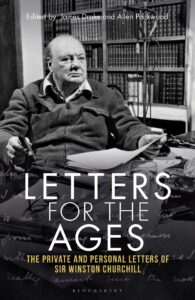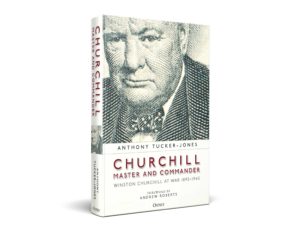Finest Hour 139
Old Titles Revisited: The Paladin

Winston Churchill, Parliament Square, London © Sue Lowry & Magellan PR
June 19, 2013
Finest Hour 139, Summer 2008
Page 24
The Paladin, by Brian Garfield. New York: Simon & Schuster, 1979; London, Macmillan 1980; Book Club Associates 1981, 350 pages.
By Richard M. Langworth
A Gripping Novel?
A Fictional Biography?
Finest Hour 48
Summer 1985
The story is impossible—fantastic. An eleven-year-old boy named Christopher Creighton leaps a garden wall in Kent one day and finds himself face to face with Winston Churchill, whom he will later know by the code-name “Tigger.” It is 1935.
Christopher, who continues to invade Chartwell, impresses WSC with his audacity and pluck, and in 1939, aged fifteen, he is recruited into the British Secret Service by a pair of spy-masters known as “Owl” and “Winnie-the-Pooh.”
He then accomplishes a succession of what can only be termed “climacterics.” He warns of Belgium’s plans to surrender to Hitler in time to save the British Army at Dunkirk. (In fact, King Leopold issued warnings of his impending surrender in advance; see FH 138.) He finds secret U-boat pens in Ireland and blows the Germans’ most strategic cover for Atlantic warfare. He sabotages a friendly Dutch submarine and sends its crew to the bottom after it reports the Japanese battle fleet en route to Pearl Harbor—because Churchill refuses to pass the warning to Roosevelt, and the Americans must not know. Back in London, Christopher finishes the job by murdering a cipher clerk who has read the sub’s message—and she turns out to be one of his lady friends.
He engineers the assassination of Vichy’s treacherous Admiral Darlan, and tips off the Nazis to the Dieppe raid so they will meet it in force, convincing the Americans that it is too soon for a cross-channel invasion. Finally, when the invasion really is on, he steers the Germans into defending Calais and not Normandy. By which time Christopher Creighton is a good deal older, wiser, sadder and bloodier. But war is a dirty business!
Although the plot strains the imagination—so many conspiracies, all engineered by a boy—it is nonetheless gripping, well-written and plausible. Garfield’s characterization of Churchill tallies closely with the most authoritative accounts of WSC’s intimates; the vivid scenes at the “hole in the ground” (Cabinet War Rooms) are painted with authority. Ribbentrop, the Belgians and French, the British and German secret agents, are entirely believable, based on what we know from the history books. Brian Garfield is more plausible than Len Deighton, as exciting as Ian Fleming. His novel is splendid entertainment for the highly committed Churchillian, and you should definitely add a copy to your library of tall tales.
One thing more. “The hero is a real person,” Garfield wrote in 1980. “He is now in his fifties. His name is not Christopher Creighton.”
We’ve often thought that the Churchill novels of Michael Dobbs are so well scripted, so faithful to the real-life characters in them—and that we would not be surprised to see them quoted by some careless future writer as actually having said what Michael has them say. Well, Brian Garfield had a twenty-year head start, and guess what. A few years ago, “Christopher Creighton” surfaced, purporting to write a book about his adventures. We report, you decide.
Subscribe
WANT MORE?
Get the Churchill Bulletin delivered to your inbox once a month.






